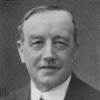Arthur Henderson

Arthur Henderson
Arthur Henderson PCwas a British iron moulder and Labour politician. He was the first Labour cabinet minister, won the Nobel Peace Prize in 1934 and, uniquely, served three separate terms as Leader of the Labour Party in three different decades. He was popular among his colleagues, who called him "Uncle Arthur" in acknowledgement of his integrity, his devotion to the cause and his imperturbability. He was a transitional figure whose policies were, at first, close to those of the Liberal...
NationalityBritish
ProfessionPolitician
Date of Birth13 September 1863
Arthur Henderson quotes about
The nations must be organized internationally and induced to enter into partnership, subordinating in some measure national sovereignty to worldwide institutions and obligations.
The years of the economic depression have been years of political reaction, and that is why the economic crisis has generated a world peace crisis.
It is because I believe that it is in the power of such nations to lead the world back into the paths of peace that I propose to devote myself to explaining what, in my opinion, can and should be done to banish the fear of war that hangs so heavily over the world.
One of the first essentials is a policy of unreserved political cooperation with all the nations of the world.
The drive toward economic nationalism is only part of the general revival of nationalism.
The question is, what are we to do in order to consolidate peace on a universal and durable foundation, and what are the essential elements of such a peace?
In short, it may be said that on paper the obligations to settle international disputes peacefully are now so comprehensive and far-reaching that it is almost impossible for a state to resort to war without violating one or more solemn treaty obligations.
The world before 1914 was already a world in which the welfare of each individual nation was inextricably bound up with the prosperity of the whole community of nations.
Four years of world war, at a cost in human suffering which our minds are mercifully too limited to imagine, led to the very clear realization that international anarchy must be abandoned if civilization was to survive.
I do not believe that the values which the Western democracies consider essential to civilization can survive in a world rent by the international anarchy of nationalism and the economic anarchy of competitive enterprise.
The forces that are driving mankind toward unity and peace are deep-seated and powerful. They are material and natural, as well as moral and intellectual.
This is our world, and we must make the best of it.
Another essential to a universal and durable peace is social justice.
When we saw a down tick in the economy, pet businesses continued to do OK, ... People were very elastic when it came to spending for their pets.